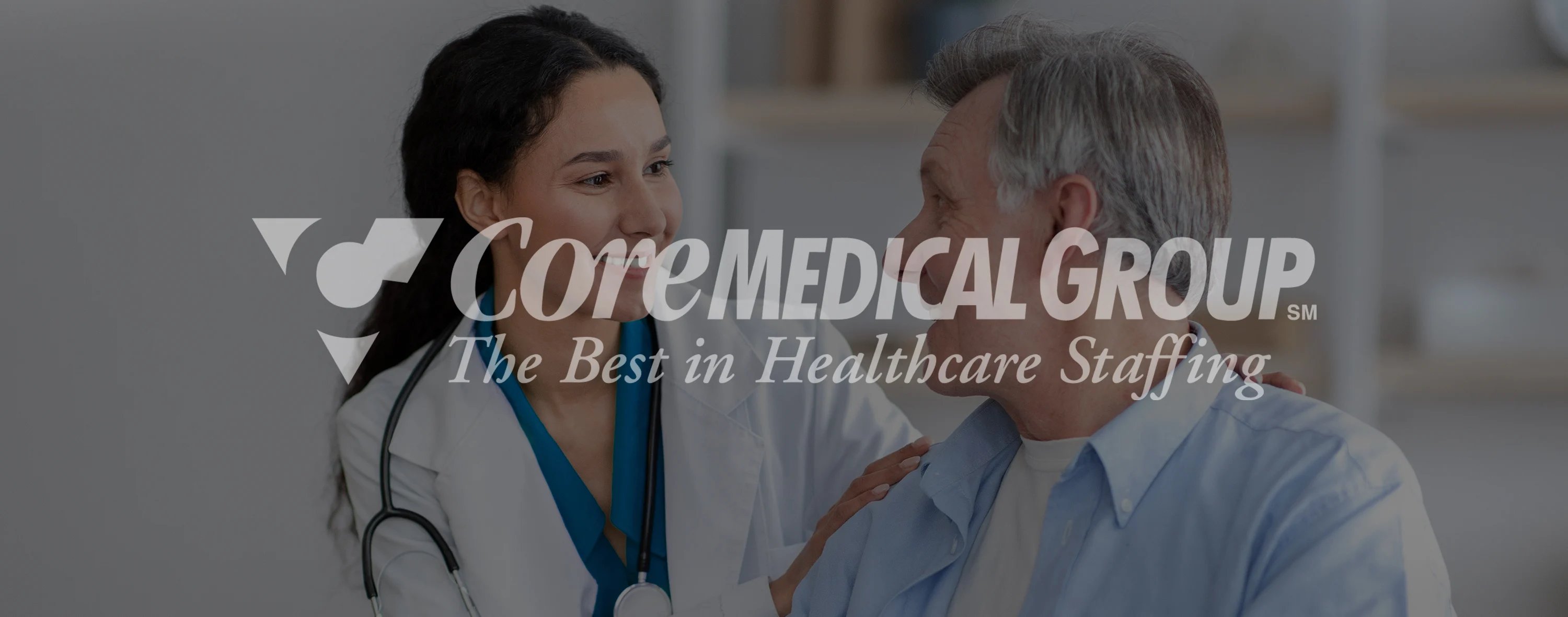
Becoming an orthopedic specialist and going through an orthopedic residency in physical therapy are no simple tasks and the decision to pursue residency should not be taken lightly. Ask yourself - are you passionate about physical therapy? More specifically, are you passionate about a single area of physical therapy? If you answer is yes, residency is a great stop on the path to mastery. There is a lot of controversy about pursuing residency following PT school, and most of the controversy is around cost, debt, and finances - all good arguments. What's most important to think about and ask yourself are 2 questions:
- Does the path to becoming an expert practitioner get me excited every day I wake up in the morning?
- Can I support myself and my family (if you have a family to support) in the short term while pursuing something that I am passionate about?
If your answer to these questions are both YES, then likely residency is a great direction for you. We have this story about life ingrained in us from the generations which came before - work hard, stay at one company forever, put money in your 401k for retirement, and sacrifice your today for the future. Although there is wisdom in this advice, it is misaligned with the true nature of being alive in today's age. We are in an age of opportunity where work and careers are more of an ongoing process with endless possibilities than a single entity with a single hierarchy and path.
AJ Sobrilsky is a 2013 Carroll University (Waukesha, WI) DPT graduate and an EIM orthopedic residency graduate of August 2014. He currently lives, works, and plays (run, climb, ski) in Flagstaff, AZ, and the endless surrounding SW areas. He works in outpatient orthopedics where he sees a variety of conditions but has focused a lot of his time and energy in establishing himself as a premier and sought-after provider for the local recreational and professional runners that both live and travel to train in the Flagstaff area. You can follow him on Twitter @gorunnerya.
What made you decide to pursue residency training?
I think from the beginning of PT school I knew sports/ortho was where my skill set would best fit, but it wasn’t until the fall semester of my last year in school that I really knew anything about the residency option. I’m of a mindset that if you want to be the best at something and provide a high quality/value product then you should do, learn, and emulate what the best are doing/practicing. Through a presentation, an individual from EIM did for our class, and learning about the process/opportunity entailed it was clear that if I was going to be an established, skilled, and respected clinician (quickly) this was a necessity in that journey. This avenue allowed me exposure to the highest quality clinicians, treatment evidence, and clinical skill sets focused on orthopedics. Additionally, it provided exposure/guidance/mentorship from veteran clinicians whose sole purpose is to ensure my professional development. I can confidently say it has been the most important/crucial component to the status of my career to this point.
What residency program are you attending (or did you attend) and why?
I attended an EIM ortho residency through Bellin Health in Green Bay, WI. Honestly, this was the one that came and talked to our school and thus the only one I really knew about at the time. I’m from Wisconsin and attended both undergrad and grad programs in the state and at that point in my life staying close to home was something I valued. However, it was quickly apparent as I looked into the Bellin Health system and the model they had established for their residency program (as well as the priority they made for every clinician in their system to be exposed to quality continuing education and the progressive ever-changing format/demands of healthcare) that I had found a great option. I was in house (every day I worked side by side) with multiple established residency mentors, EIM fellows, and other EIM residents which was great because there is/was always someone to chat evidence, patient presentations/clinical reasoning, and practice skills with fostering a very progressive and passionate atmosphere for all things physical therapy.
Can you give an example of a “typical” week in the residency program?
Throughout the residency, I worked a typical 40hr week, with one of those days spent having my mentor observing/aiding me in treating patients. The typical “residency work” involved 2-3 nights watching/reading the content for that week (on average 4-6 hours total), then another 2-4 hours developing my response to the designated discussions/projects. Then the latter part of the week on/off combined probably 2-3 hours reading and engaging with other residents on the discussion boards. There were some weeks that were less than this but some that were more. But, I truly feel this is one of those opportunities that you get out what you put in so I tried to take advantage of every possible learning outlet.
What is your typical caseload in the program?
The caseload throughout the residency isn’t that much different than a typical caseload for an outpatient orthopedic clinician. The only caveat to that is the residency programs (and the APTA) require you see a certain percentage of body regions in order to complete the program and be a candidate for the OCS exam. At times I would have to swap evals or shadow/treat with our OTs so that I would get the required elements for the body regions required in the overall caseload (such as TMJ, wrist, and elbow).
How much does the program cost? (i.e. reduced salary or full salary but paying tuition)
A great part about the residency program I went through was the ability to work full-time, onsite with mentors/fellows, and with an EIM network partner so they brought the weekend intensives in-house to our area. All of which saved me a good amount of money compared to what I’ve heard other residents having to spend both time/money going to their mentors or traveling to the weekend intensives. The health system I did the residency through fronted the residency tuition and then a certain percentage of each pay period was taken from my check to pay it back. This is a great option because as a new grad going immediately into the program I didn’t (and I doubt most do) have the $10-15k that some of these programs cost. Even though I wasn’t getting the full pay and wasn’t making what some of my classmates were it wasn’t so significant that I saw a difference in my lifestyle or ability to afford the things I wanted to do. In hindsight, the experience, skills, network, and learning I took away from those couple years in the residency are invaluable and far exceed the monetary expense.
What opportunities have you or will you seek out after finishing the residency program?
Oh, great question. Pretty quickly after I completed the residency I moved across the country to Flagstaff, AZ. This has lead to some great opportunities and avenues professionally and personally. I’ve been working professionally on developing/establishing my niche as I mentioned above within the sports populations and specifically with runners and running-related injuries. A lot of my recent professional experiences have been focused on enhancing my clinical skills within those realms such as con-ed and coordination with skilled mentors in those areas. I’ve also been active in the local physical therapy program helping in labs, giving lectures, and just being an open-source for the local students. Teaching and research is something that really interests me and something I would like to pursue down the road. One of the best things I think I’ve done since the residency though is pursue some personal adventures and experiences. I was one of those who went straight through undergrad to PT school and then immediately into the residency program. Through a lot of those years, I was also trying to do a lot of my own training to compete on an elite level of running as well and so I stayed pretty cemented and focused on those few things. But, moving out here (Flagstaff) and reflecting on some of the things I’ve come to value and prioritize in life allowed me the chance to step back and enjoy some adventures and relationships that I sacrificed in those earlier more focused/structured years.
What have you gained from attending the program (knowledge, skills, etc…) that you may not have gained otherwise?
The honest answer would be I gained just about everything. From friends and mentors, skill sets and knowledge, to a valuable network of like-minded passionate individuals. I think most importantly I learned how to care; about the people, for the process, and all the little in the moment experiences that are lost when we just go to work and do a job.
What advice do you have for students that wish to pursue a residency after graduation?
In general, I would say go for it. “
You miss 100% of the shots you don’t take” - Wayne Gretzky
I think if an individual's personal goal is to provide a valuable patient experience of the highest quality then a residency is the most efficient and effective route to elevate oneself to that level professionally.
“Every morning in Africa, a gazelle wakes up. It knows it must run faster than the fastest lion or it will be killed...every morning a lion wakes up. It knows it must outrun the slowest gazelle or it will starve to death. It doesn't matter whether you are a lion or a gazelle...when the sun comes up, you'd better be running.”

I’d also say that pursuing residency immediately upon graduation or finding an organization that has outlets to work into these types of professional development options is essential. Now is the perfect time to prune all the info we took from PT school and honestly we are still wired for a school-like atmosphere, not to mention this will probably be the most responsible free time we have the rest of our lives. “Some people want it to happen. Some wish it could happen. And others… make it happen.” - Michael Jordan
